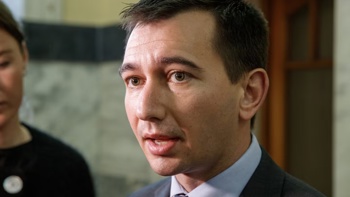Travellers from China will continue to be able to come to New Zealand without showing a negative Covid-19 test as other nations, including the US, impose restrictions because of a surge of infections.
It comes as the Asian country resumes travel for citizens who wish to go overseas from next week.
A Ministry of Health spokesperson said they will however monitor the situation in China alongside global trends.
“At this stage, it has been assessed that international arrivals, including from China, do not significantly change the risk of Covid-19 in New Zealand and the current public health measures remain appropriate for managing the pandemic,” they said.
“We continue to encourage recent arrivals to get tested if they experience Covid-19 symptoms.”
The US announced on Wednesday that all travellers to the US from China will be required to take a Covid-19 test no more than two days before travel and provide a negative test before boarding their flight. The testing applies to anyone aged 2 years and older.
Other countries have taken similar steps in an effort to keep infections from spreading beyond China’s borders. Japan will require a negative Covid-19 test upon arrival for travellers from China, and Malaysia announced new tracking and surveillance measures. India, South Korea and Taiwan are requiring virus tests for visitors from China.
The increase in cases across China follows the rollback of the nation’s strict anti-virus controls. China’s “zero Covid” policies had kept China’s infection rate low but fuelled public frustration and crushed economic growth.
The latest Covid-19 Trends and Insight report found that the number of weekly cases globally in the week ending December 18 was 3 per cent higher than the previous week.
The Ministry expects the global pandemic situation to be driven by the ongoing emergence of new variants, waning immunity and the Northern Hemisphere heading into winter.
- US will require COVID-19 testing for travelers from China
- China races to vaccinate elderly amid Covid surge, but many reluctant
“In New Zealand, the Ministry and its health partners – including Te Whatu Ora – have already been planning for a significant increase in cases over summer likely driven by waning immunity, new variants and changes in behaviour,” said a Ministry of Health spokesperson.
The Ministry also reminded people to take the steps to protect themselves, their families and communities over the holidays including being up to date with vaccinations, have RATS on hand, staying home and isolating if you test positive and wearing masks in high-risk settings, such as closed or crowded spaces with poor ventilation.
“The current vaccines remain effective at reducing risk of severe disease if you are infected with any of the subvariants currently circulating.”
It is also advising that people call their pharmacist or healthcare provider to see if they are eligible for antiviral medicines. The medicine would be able to be delivered by friends, whānau or the pharmacy’s delivery service and must be started within five days of becoming sick.
Lunar New Year, which begins on January 22, is usually China’s busiest travel season, and China announced on Tuesday it will resume issuing passports for tourism for the first time since the start of the pandemic in 2020.
The US action is a return to requirements for some international travellers. The Biden administration lifted the last of such mandates in June. At that time, the CDC continued to recommend that people boarding flights to the US get tested close to departure time and not travel if they are sick.
Early in the pandemic, the US barred entry to foreigners travelling from China, weeks after the virus first emerged there three years ago. Americans were allowed to return home and flights from China were funnelled to selected airports where passengers were screened for illness.
But the virus already was spreading in the US among people with no travel history.
Additional reporting from AP.
Take your Radio, Podcasts and Music with you









